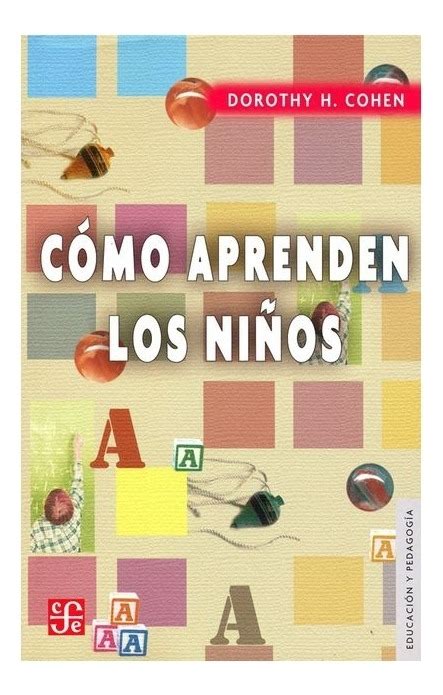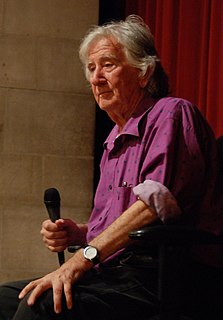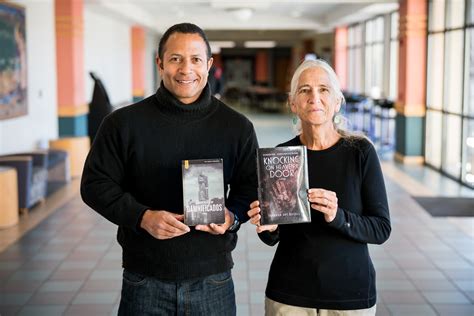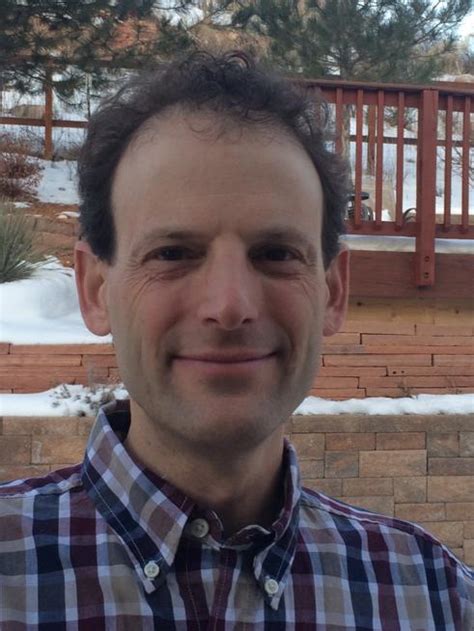A Quote by Dorothy H Cohen
Parents must begin to discover their children as individuals of developing tastes and views and so help them be, and see, themselves as thinking, feeling people. It is far too easy for a middle-years child to absorb an over-simplified picture of himself as a sloppy, unreliable, careless, irresponsible, lazy creature and not much more--an attitude toward himself he will carry far beyond these years.
Related Quotes
For children, the era of mass incarceration has meant a tremendous amount of family separation, broken homes, poverty, and a far, far greater level of hopelessness as they see so many of their loved ones cycling in and out of prison. Children who have incarcerated parents are far more likely themselves to be incarcerated.
I am stealing the golden vessels of the Egyptians to build a tabernacle to my God from them, far far away from the boundaries of Egypt. If you forgive me, I shall rejoice; if you are enraged with me, I shall bear it. See, I cast the die, and I write the book. Whether it is to be read by the people of the present or of the future makes no difference: let it await its reader for a hundred years, if God himself has stood ready for six thousand years for one to study him.
People who, as children, were intellectually far beyond their parents and therefore admired by them, but who also therefore had to solve their own problems alone. These people, who give us a feeling of their intellectual strength and will power, also seem to demand that we, too, ought to fight off any feeling of weakness with intellectual means. In their presence one feels one cannot be recognized as a person with problems just as they and their problems were unrecognized by their parents, for whom he always had to be strong.
Everything in the world we want to do or get done, we must do with and through people. Every dollar we will ever earn must come from people. The person we love, and with whom we want to spend the rest of our life, is a human being with whom we must interact. Our children are individuals, each different from any other person who ever lived. And what affects them most is our attitude-the loving kindness they see and feel whenever we are around them. If you'll begin to develop and maintain an attitude that says yes to life and the world, you'll be astonished at the changes you'll see.
Theatre has nothing to do with buildings or other physical constructions. Theatre - or theatricality - is the capacity, this human property which allows man to observe himself in action, in activity. Man can see himself in the act of seeing, in the act of acting, in the act of feeling, the act of thinking. Feel himself feeling, think himself thinking.
Of course, we carry inside of ourselves our parents. Even when they are dead, we carry them inside ourselves. And they are carrying inside themselves their dead parents and so on and so forth. There is a legacy of language and culture and religion. In some cases, family stories told by grandparents to little grandchildren. When I say my novels are set in Israel in the last seventy years, this entails the fact that they begin hundreds or thousands of years earlier in time. Everybody comes from somewhere.
Some of us need to discover that we will not begin to live more fully until we have the courage to do and see and taste and experience much less than usual... And for a man who has let himself be drawn completely out of himself by his activity, nothing is more difficult than to sit still and rest, doing nothing at all. The very act of resting is the hardest and most courageous act he can perform.
The FCO must help Turkey reinforce accountable state institutions, while also developing ties far beyond them: the UK needs a deeper and therefore more durable relationship with the Turkish people, whichever background they hold, while working to uphold the values of human rights and democracy that benefit them all.
I will help-but only so much, only so far. It is not that I believe these children are less than my own. It is not that I believe I do not have a responsibility for them. It is just that in a world of haves and have-nots, I do not want to give up too much of what I have. I do not want to diminish the complexity and diversity of my life. Instead, I will choose to spend another seventy-five dollars on myself rather than send another child to school, and I will choose to do this over and over again. I no longer think of myself as a good person. I have adjusted to that.
I look for people who have raw intelligence and a great work ethic and loyalty, and I can quickly identify people who have the right ingredients. But sometimes it is more difficult to get them to accept the fact that they can take on increasing responsibility. Oftentimes individuals will decide how far [they] go by how much work they're willing to put in and how quick they are to ask for help. Too many people have this deep-seated fear that if they ask for help, they will be thought less of.
Much research in psychology has been more concerned with how large groups of people behave than about the particular ways in which each individual person thinks... too statistical. I find this disappointing because, in my view of the history of psychology, far more was learned, for example, when Jean Piaget spent several years observing the ways that three children developed, or when Sigmund Freud took several years to examine the thinking of a rather small number of patients.






































